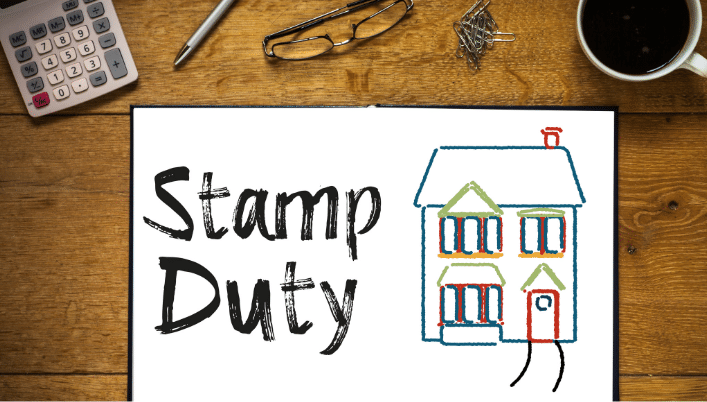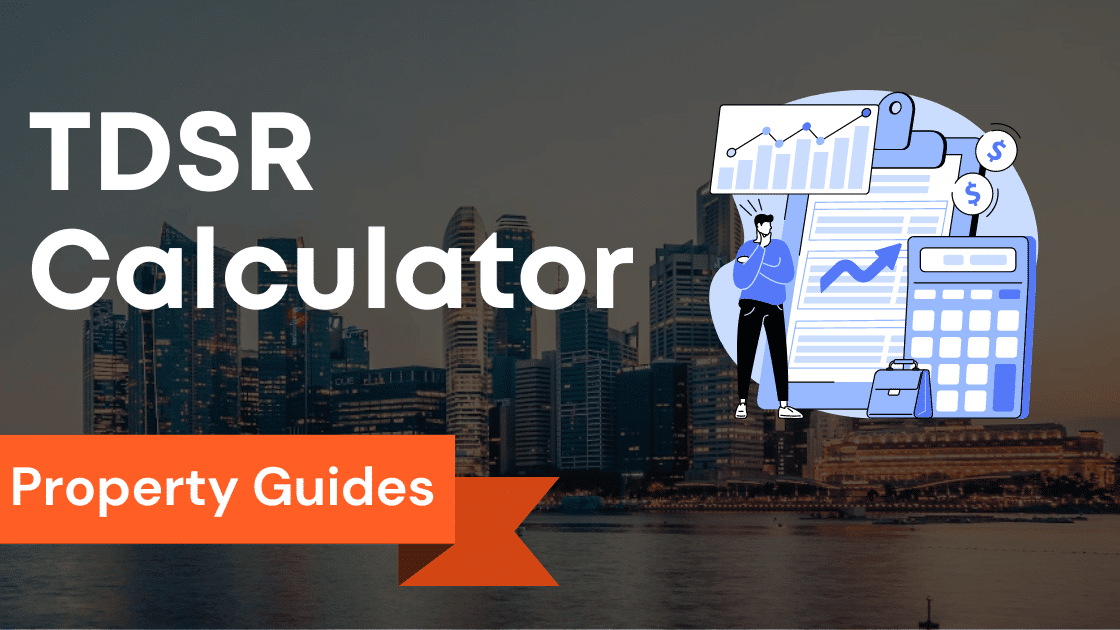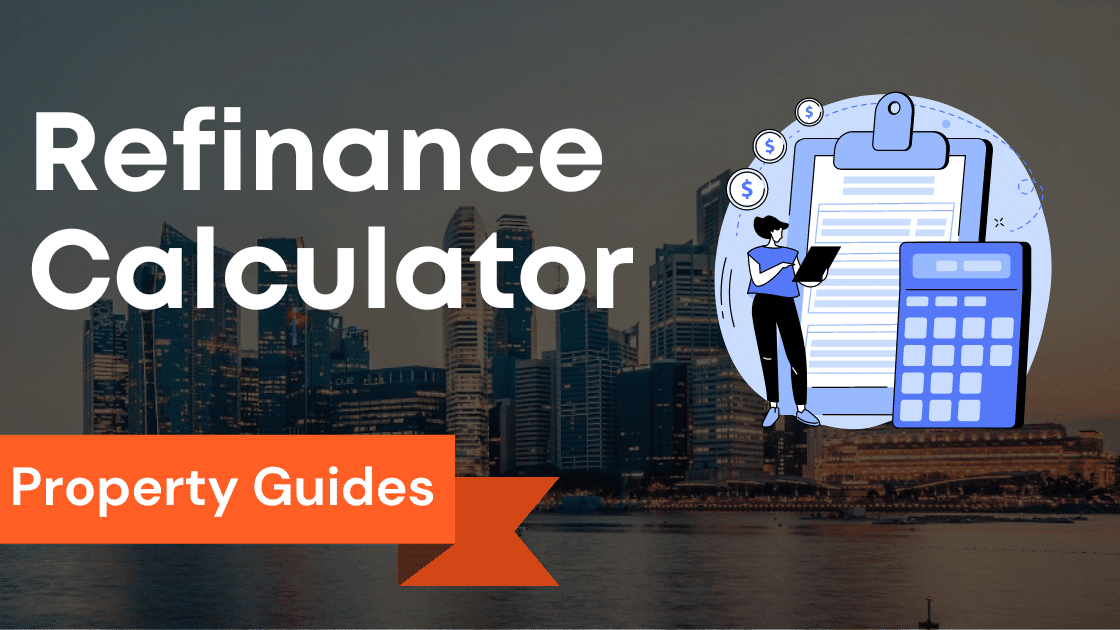
Discover the choreography of calculations, relish the elegance of exemptions, and unravel the dynamic duet of stamp duty and ABSD.
Let this tantalizing glimpse awaken your curiosity, promising a symphony of insights as you venture further into the realm of property transactions and taxation.
The stage is set, and the spotlight is on – get ready to unravel the mesmerizing intricacies of stamp duty!
Key Takeaways
- Overview of Stamp Duty: Stamp duty is a tax imposed on property transactions, calculated based on purchase price or market value. It is crucial for property sales or ownership transfers.
- Importance of Payment: Compliance with stamp duty is legally required. Failure to pay can lead to penalties and legal disputes. Accurate payment ensures compliance with tax laws and budget planning.
- Implications of Non-Payment: Non-payment or underpayment can result in legal issues, fines, and disputes. Validity of transactions may be affected, impacting ownership rights.
- Stamp Duty Calculator Factors: The calculator considers property price, residency status, property type, and exemptions. It streamlines accurate calculations for various property types.
- Calculation Steps: Using a calculator involves inputting property details, calculating stamp duty, and reviewing results. Accurate calculations are essential to avoid financial implications.
- Accuracy and Consequences: Inaccurate calculations can lead to additional payments or financial loss. Overpaying can tie up funds that could be used elsewhere.
- Role of Calculator: A stamp duty calculator ensures accurate calculations, providing up-to-date rates and regulations. It builds confidence in compliance with tax laws.
- Exemptions and Reliefs: Some buyers may qualify for exemptions or reliefs, reducing stamp duty liability. Researching and understanding these options can lead to savings.
- Timing Considerations: Timing property purchases can impact stamp duty costs. Purchasing before rate changes may result in savings.
- Leasehold vs. Freehold: Stamp duty varies for leasehold and freehold properties. Leasehold stamp duty may cover entire lease term, while freehold is based on the purchase price.
Understanding Stamp Duty: A Crucial Aspect of Property Transactions
Overview of stamp duty
Stamp duty is a tax imposed on property transactions.
It is levied upon the sale or transfer of ownership of a property.
The amount of stamp duty payable is generally calculated based on the property’s purchase price or market value, whichever is higher.
Payments are made to the tax authority of the respective jurisdiction, such as the Inland Revenue Authority of Singapore (IRAS) in the case of Singapore.
Importance of stamp duty in property transactions
Stamp duty plays a crucial role in property transactions for several reasons.
Firstly, it is a legal requirement to pay stamp duty when purchasing or transferring ownership of a property.
Failing to pay stamp duty can have serious legal implications and may result in penalties or legal disputes.
Secondly, accurate calculation and payment of stamp duty are essential for parties involved in the transaction to comply with tax laws and regulations.
Lastly, stamp duty forms a significant portion of the overall costs involved in buying or selling a property, making it important to factor in this expense during budgeting and financial planning.
Implications of not paying stamp duty
Failure to pay stamp duty can result in serious consequences.
Non-payment or underpayment of stamp duty could lead to legal issues, fines, or penalties imposed by the tax authorities.
Furthermore, not paying stamp duty can affect the validity of the property transaction and may result in disputes regarding ownership rights.
It is crucial for all parties involved in a property transaction to understand their obligations and ensure the accurate payment of stamp duty.
Demystifying the Stamp Duty Calculator: How It Works and Why It Matters
Factors considered in stamp duty calculation
A stamp duty calculator takes various factors into account when calculating the stamp duty payable.
These factors may include the property price or market value, the buyer’s residency status, property type, and any applicable exemptions or reliefs.
Different jurisdictions may have specific rules and regulations governing stamp duty calculation.
Using a stamp duty calculator for different property types
A stamp duty calculator can be used for a wide range of property types, including residential, commercial, and industrial properties.
Different property types may have different stamp duty rates and regulations.
Therefore, it is essential to use a stamp duty calculator that is specific to the property type to ensure accurate calculations.
Calculating Stamp Duty: A Step-by-Step Guide to Ensure Accuracy

A stamp duty calculator is a useful tool that helps individuals estimate the amount of stamp duty they need to pay for a property transaction.
Using a stamp duty calculator involves a few simple steps:
- Input the necessary information: The user needs to provide essential details such as the property price or market value, the buyer’s residency status, and any applicable exemptions or reliefs.
- Calculate the stamp duty: Once the necessary information is inputted, the calculator will generate the stamp duty amount based on the prevailing stamp duty rates and regulations.
- Review the results: The stamp duty calculator will display the calculated stamp duty amount along with any additional information or advice related to the payment.
Consequences of inaccurate stamp duty calculation
Calculating stamp duty accurately is of utmost importance to avoid potential consequences.
If the stamp duty is undercalculated, the buyer may face financial implications such as additional payment requests from the tax authority or even legal action.
On the other hand, overpaying stamp duty can result in unnecessary financial losses.
Therefore, it is crucial to calculate stamp duty accurately to ensure compliance with tax laws and avoid any unwanted financial repercussions.
Financial implications of underpaying or overpaying stamp duty
Underpaying or overpaying stamp duty can have significant financial implications.
Underpaying stamp duty may result in the tax authority assessing additional taxes, penalties, and interest on the outstanding amount.
This not only leads to financial loss but also creates unnecessary stress and potential legal issues.
Conversely, overpaying stamp duty means tying up excess funds, which could have been used for other purposes such as renovations or investments.
Calculating stamp duty accurately is crucial to avoid any unnecessary financial burden.
The role of a stamp duty calculator in ensuring accuracy
A stamp duty calculator plays a crucial role in ensuring the accuracy of stamp duty calculations.
By using a stamp duty calculator, individuals can rely on a trusted tool that takes into account the latest stamp duty rates and regulations.
The calculator provides accurate estimates and removes the possibility of human error during manual calculations.
Using a stamp duty calculator instills confidence in the accuracy of the calculated stamp duty amount and promotes compliance with tax laws and regulations.
Property Transactions and Stamp Duty: Navigating the Complexities

Understanding stamp duty rates and exemptions
Stamp duty rates and exemptions vary depending on the jurisdiction and the nature of the property transaction.
Different countries or regions may have different tax structures and regulations.
It is essential to understand the applicable stamp duty rates and any exemptions or reliefs available to ensure compliance with the law and optimize the financial aspects of the property transaction.
Calculating stamp duty for leasehold versus freehold properties
Stamp duty calculations may differ for leasehold and freehold properties.
In some cases, stamp duty may be payable on the entire leasehold term at the time of purchase, whereas for freehold properties, stamp duty is generally based on the purchase price.
It is crucial to consider the specific rules and regulations regarding stamp duty for leasehold and freehold properties to ensure accurate calculations.
Stamp duty considerations for property purchases versus rentals
Stamp duty calculations may vary depending on whether the property is being purchased or rented.
In some jurisdictions, stamp duty is only applicable to property purchases and not rentals.
It is essential to understand the stamp duty implications for both property purchases and rentals to accurately factor in the costs associated with the respective types of transactions.
The Role of a Stamp Duty Calculator in Property Purchases and Leases
Streamlining the stamp duty calculation process
Using a stamp duty calculator streamlines the stamp duty calculation process.
It eliminates the need for manual calculations, reducing the chances of errors and saving time.
By inputting the necessary information into a stamp duty calculator, users can quickly obtain accurate estimates of the stamp duty payable for their property purchase.
Accessing the latest stamp duty rates and regulations
A stamp duty calculator provides up-to-date information on the prevailing stamp duty rates and regulations.
Many calculators are regularly updated to reflect any changes in the tax structure or legislation.
This ensures that users have access to the latest information and can make informed decisions regarding their property transactions.
Getting accurate stamp duty estimates for budgeting purposes
Using a stamp duty calculator enables individuals to obtain accurate estimates of the stamp duty payable for budgeting purposes.
By knowing the estimated stamp duty amount, buyers can better plan their finances and account for this expense when determining their purchasing power.
Accurate stamp duty estimates contribute to transparent and informed decision-making in property transactions.
Maximizing Savings: Tips for Minimizing Stamp Duty Payments
Understand how the stamp duty calculator works
Before making any property purchases or entering into tenancy agreements, it is crucial to understand how the stamp duty calculator works.
The calculator takes into account the value of the property or rental agreement, as well as various factors such as whether the buyer is a first-time buyer, the type of property, and the location.
By inputting accurate information into the calculator, individuals can get an estimate of the stamp duty payable and plan their finances accordingly.
Explore exemptions and reliefs for stamp duty
There are various exemptions and reliefs available for stamp duty, which can help reduce tax liability.
For example, first-time buyers may be eligible for relief schemes that provide reduced or no stamp duty payment for their initial property purchase.
It is important to research and understand the qualifying criteria for these relief schemes in order to take full advantage of the savings.
Timing your purchase to reduce stamp duty
The timing of a property purchase can also impact the amount of stamp duty payable.
It is important to consider the time frame in which the purchase will take place and whether any changes in stamp duty rates are anticipated.
By purchasing property before any rate changes come into effect, individuals can potentially save on stamp duty payments.
Exploring Stamp Duty Rates for Different Property Types and Transactions

Stamp duty rates for residential properties
The stamp duty rates for residential properties vary depending on the value of the property and whether the buyer is a first-time buyer or not.
It is essential to be aware of these rates in order to accurately calculate the stamp duty payable.
Stamp duty rates for commercial properties
For commercial properties, the stamp duty rates are different from residential properties.
Commercial properties include offices, shops, industrial properties, and warehouses.
It is important for businesses and investors to understand these rates when planning their commercial property investments.
Stamp duty rates for additional properties
In addition to the standard stamp duty rates, additional stamp duty is applicable to the purchase of additional properties.
This includes second homes and buy-to-let properties.
The rates for additional properties are higher than those for primary residences, so it is important to consider this when calculating the stamp duty payable.
Understanding ABSD (Additional Buyer’s Stamp Duty): Implications and Rates
What is ABSD, and who is affected by it?
ABSD stands for Additional Buyer’s Stamp Duty and is an additional tax on top of the standard stamp duty.
ABSD is applicable to certain groups of buyers, such as foreigners, entities, and individuals purchasing second or subsequent residential properties.
It is important for these buyers to understand the implications of ABSD and calculate the additional tax payable.
ABSD rates for different buyer profiles
The ABSD rates vary depending on the buyer’s profile and the number of properties owned.
For example, a foreigner purchasing their first residential property may have a different ABSD rate compared to a Singaporean purchasing their second property.
It is important to consult the stamp duty calculator or seek professional advice to accurately calculate the ABSD payable.
Calculating ABSD for multiple property purchases
For individuals or entities purchasing multiple properties, the ABSD is calculated based on the total number of properties owned.
The more properties owned, the higher the ABSD rate and the greater the tax liability.
It is important to factor in the ABSD costs when planning property acquisitions.
Stamp Duty for Tenancy Agreements: What Landlords and Tenants Need to Know
Stamp duty on residential tenancy agreements
Stamp duty is applicable to residential tenancy agreements in Singapore.
The stamp duty payable is determined by the annual rent and the lease period.
Landlords and tenants should be aware of these stamp duty obligations when entering into residential tenancy agreements.
Stamp duty on commercial tenancy agreements
Similar to residential tenancy agreements, stamp duty is also applicable to commercial tenancy agreements.
The stamp duty payable may vary depending on the lease period and the annual rent.
It is important for businesses and landlords to factor in these stamp duty costs when leasing commercial properties.
Understanding stamp duty exemptions for tenancy agreements
There are certain exemptions available for stamp duty on tenancy agreements.
For example, leases granted by public authorities or certain government bodies may be exempt from stamp duty.
It is important to understand these exemptions and seek professional advice if unsure to ensure compliance with stamp duty regulations.
Navigating Stamp Duty for Residential Properties: First-Time Buyers’ Relief and Beyond
Overview of stamp duty for first-time buyers
First-time buyers may be eligible for relief schemes that provide reduced or no stamp duty payment for their initial property purchase.
This can significantly reduce the upfront cost of buying a property and help first-time buyers get onto the property ladder.
Qualifying criteria for first-time buyers’ relief
In order to qualify for first-time buyers’ relief, certain criteria must be met.
These criteria may include being a Singapore citizen, not owning any other residential property locally or globally, and not having received any housing subsidy or grant before.
It is important for first-time buyers to understand and meet these criteria to take advantage of the relief schemes.
Other potential stamp duty relief schemes
In addition to relief schemes for first-time buyers, there may be other stamp duty relief schemes available for certain groups, such as families purchasing a joint property or married couples.
It is important to research and understand these relief schemes to maximize savings on stamp duty payments.
Stamp Duty for Commercial Properties: A Comprehensive Overview

What is the stamp duty on commercial properties?
The stamp duty on commercial properties is a tax payable by the buyer upon the purchase or transfer of higher-value residential and non-residential properties.
It is calculated based on the purchase price or market value of the property, whichever is higher.
How is the stamp duty calculated for commercial properties?
The stamp duty for commercial properties is calculated using a tiered system.
The rate of stamp duty increases as the purchase price or market value of the property increases.
For example, in the United Kingdom, the stamp duty rates for commercial properties range from 0% for properties valued below £150,000 to 5% for properties valued above £250,000.
Are there any exemptions or reliefs for stamp duty on commercial properties?
It is important to note that there may be exemptions or reliefs available for stamp duty on commercial properties.
For example, in Northern Ireland, there is no stamp duty on the purchase of commercial properties valued below £150,000.
Additionally, certain types of property transfers, such as those involving shares or the holding of property in certain structures, may be exempt from stamp duty.
Stamp Duty Land Tax (SDLT) vs. Stamp Duty in Singapore: A Comparative Analysis

Stamp Duty Land Tax (SDLT) is a tax imposed on property transactions in the United Kingdom, while stamp duty is a similar tax in Singapore.
Although both taxes serve a similar purpose, there are some key differences between SDLT and stamp duty in Singapore that property buyers should be aware of.
What is Stamp Duty Land Tax (SDLT) and how does it differ from stamp duty in Singapore?
Stamp Duty Land Tax (SDLT) is a tax that is imposed on the purchase or transfer of residential and non-residential properties in the United Kingdom.
It is calculated based on a specific set of rates that vary depending on the value of the property.
On the other hand, stamp duty in Singapore is a tax that is imposed on the purchase or transfer of residential and commercial properties and is calculated based on the purchase price or market value of the property.
Which factors determine the stamp duty payable in the UK?
In the United Kingdom, the stamp duty payable on a property is determined by several factors.
One of the key factors is the purchase price or market value of the property.
The stamp duty rates are higher for properties with a higher value.
Additionally, the type of property, such as residential or non-residential, can also affect the stamp duty payable.
What are the key differences in stamp duty rates between the UK and Singapore?
There are significant differences in the stamp duty rates between the United Kingdom and Singapore.
In the United Kingdom, the stamp duty rates for residential properties range from 0% for properties valued below £125,000 to 12% for properties valued above £1.5 million.
In Singapore, the stamp duty rates for residential properties range from 1% to 4%, depending on the purchase price or market value of the property.
Factors Influencing Stamp Duty Payable: Property Price, Lease Period, and More

Several factors can influence the amount of stamp duty payable on a property.
One of the main factors is the property price.
As mentioned earlier, the stamp duty rates are higher for properties with a higher value.
Additionally, the type of property, such as leasehold or freehold, can affect the stamp duty payable.
How does property price affect the amount of stamp duty payable?
The property price directly affects the amount of stamp duty payable.
In most jurisdictions, including the United Kingdom and Singapore, the stamp duty rates are higher for properties with a higher value.
This means that buyers of more expensive properties will have to pay a higher amount of stamp duty.
Is the stamp duty different for leasehold and freehold properties?
Yes, the stamp duty can be different for leasehold and freehold properties.
In some jurisdictions, such as the United Kingdom, the stamp duty rates for leasehold properties are generally higher than those for freehold properties.
This is because leasehold properties have an indefinite term and are subject to periodic lease renewals.
Are there any other factors that can influence the stamp duty payable on a property?
Yes, there are other factors that can influence the stamp duty payable on a property.
These factors may include the previous ownership history of the property, the buyer’s status as a first-time buyer, and any applicable exemptions or reliefs.
It is important for property buyers to seek professional advice to understand how these factors may affect their stamp duty liability.
Property Transactions under Construction: Stamp Duty Considerations and Best Practices
Property transactions that involve properties under construction may have specific considerations and best practices when it comes to stamp duty.
It is important for buyers to understand how stamp duty is calculated for properties under construction and any special considerations that may apply.
How is stamp duty calculated for properties under construction?
Stamp duty for properties under construction is usually calculated based on the purchase price or the bank-indicated property valuation at the time of the property transfer.
This means that if there are any changes or delays in the property transaction during the construction phase, the stamp duty payable may be adjusted accordingly.
Are there any special considerations or best practices when it comes to stamp duty for properties under construction?
Yes, there are some special considerations and best practices that property buyers should be aware of when it comes to stamp duty for properties under construction.
It is advisable for buyers to consult with legal and financial professionals to ensure that they are aware of any potential stamp duty implications and to plan their property purchase accordingly.
What happens if there are delays or changes in the property transaction during the construction phase?
If there are delays or changes in the property transaction during the construction phase, it is important for both buyers and sellers to understand how these changes may affect the stamp duty payable.
In some cases, the stamp duty liability may need to be adjusted to reflect the new circumstances.
It is advisable to seek professional advice to ensure compliance with the relevant stamp duty regulations.
Expert Insights: The Latest Updates on Stamp Duty Rates and Property Taxation

Stamp duty rates and property taxation are subject to ongoing updates and changes.
It is important for property buyers and sellers to stay informed about the latest developments in stamp duty rates and property taxation to make informed decisions.
What are the current stamp duty rates in the UK for different types of properties?
The current stamp duty rates in the UK vary depending on the type and value of the property.
For residential properties, the rates range from 0% for properties valued below £125,000 to 12% for properties valued above £1.5 million.
For non-residential properties, the rates range from 0% for properties valued below £150,000 to 5% for properties valued above £250,000.
Have there been any recent changes or updates to stamp duty rates or property taxation?
Stamp duty rates and property taxation are subject to regular updates and changes by the relevant authorities.
Recent updates may include changes to the rates or thresholds for stamp duty, as well as changes to other property taxation measures.
It is important to consult with professionals or check official sources to get the most up-to-date information.
What are experts saying about the impact of stamp duty on the property market?
Experts have differing opinions on the impact of stamp duty on the property market.
Some argue that high stamp duty rates can deter buyers and reduce property spending power, while others believe that stamp duty is important for regulating property transactions and generating revenue for the government.
The impact of stamp duty on the property market is a complex issue that varies depending on the specific circumstances and market conditions.
Conclusion
Embarking on a property journey can be both exhilarating and complex.
Amidst the excitement of finding your dream home or making an astute investment, there lies an important consideration that can significantly impact your financial planning: stamp duty.
As you delve into the world of property transactions, understanding the nuances of stamp duty becomes paramount.
Stamp Duty Demystified
Stamp duty, a tax levied on property transactions, holds a pivotal role in the real estate landscape.
Whether you’re a seasoned investor or a first-time buyer, comprehending the dynamics of stamp duty is crucial.
It’s imposed upon the sale or transfer of property ownership, ensuring that the fiscal obligations align with the property’s value.
This tax is particularly vital in maintaining the legal integrity of property dealings.
Why Stamp Duty Matters
The importance of stamp duty transcends mere financial figures.
Paying the correct amount ensures adherence to legal requirements and helps avoid potential penalties and legal disputes.
Moreover, it constitutes a significant portion of the overall costs involved in property transactions, necessitating careful budgeting and strategic financial planning.
Navigating the Landscape
As you embark on your property journey, navigating the realm of stamp duty requires an informed approach.
With the aid of a stamp duty calculator, you can accurately estimate your tax liability and make well-informed decisions.
This powerful tool takes into account various factors, such as property value, residency status, and exemptions, providing you with a clear picture of your financial commitment.
Unlocking Opportunities
While stamp duty is an essential consideration, it’s not a barrier to your property aspirations.
Various relief schemes and exemptions, particularly for first-time buyers, offer opportunities to optimize your financial outlay.
By understanding these potential savings, you can strategically position yourself to make the most of your property transaction.
Charting Your Path
In a property landscape teeming with complexities, stamp duty stands as a crucial waypoint.
Armed with the knowledge of its implications and intricacies, you’re better equipped to navigate the realm of property transactions.
Whether you’re a seasoned investor, a prospective homeowner, or a first-time buyer, unraveling the mystery of stamp duty empowers you to make informed, confident, and financially sound decisions.
Embark on this journey armed with insight.
Stay tuned as we delve deeper into the world of property transactions, unraveling the threads that shape your real estate endeavors.
Get ready to explore the facets of stamp duty, discover relief schemes, and navigate the intricate web of property taxation with precision and poise. Your property journey is about to become clearer and more empowering than ever before.
Frequently Asked Questions
What is a stamp duty calculator?
A stamp duty calculator is an online tool that helps users calculate the amount of stamp duty they need to pay when buying a property.
How does a stamp duty calculator work?
A stamp duty calculator works by taking the user’s inputs and applying the relevant stamp duty rates to calculate the total amount payable.
It considers factors such as the property value, whether it is a residential or non-residential property, and any applicable exemptions or reliefs.
What is Stamp Duty Land Tax?
Stamp Duty Land Tax (SDLT) is a tax paid by buyers in England and Northern Ireland when purchasing higher-value residential and non-residential properties.
The amount of SDLT payable depends on various factors, such as the property price and whether it is a first-time purchase or subsequent purchase.
Do I need to pay stamp duty if I have a mortgage?
Yes, if you are purchasing a property with a mortgage, you are still required to pay stamp duty.
The stamp duty calculation takes into account the total price of the property, including both the mortgage and cash contributions.
Does stamp duty apply to shares in property holding companies?
Yes, stamp duty can apply to the transfer of shares in property holding companies.
The amount of stamp duty payable will depend on the value of the shares being transferred.
Is stamp duty payable on rental properties?
Yes, stamp duty is payable on rental properties. Rental Stamp Duty is applicable when entering into a rental agreement for an indefinite term, and the stamp duty amount is calculated based on the monthly rent agreed upon.
What is Buyer Stamp Duty?
The amount of Buyer Stamp Duty depends on factors such as the purchase price, the buyer’s residential status, and whether it is a first-time purchase or subsequent purchase.
What is investment property stamp duty?
Investment Property Stamp Duty is the stamp duty payable on the purchase of properties that are not considered to be private properties or first homes.
The amount of stamp duty payable depends on factors such as the property value and the buyer’s residential status.
What is property spending power?
Property spending power refers to the ability of individuals or organizations to invest in or purchase properties based on their financial means and affordability.
It takes into account factors such as income, savings, borrowing capacity, and overall financial stability.
Can the stamp duty calculator be used for commercial or non-residential properties?
Yes, the stamp duty calculator can be used for both residential and non-residential properties.
It takes into account different stamp duty rates and thresholds for commercial or non-residential properties.
Is the stamp duty calculator secure?
Yes, the stamp duty calculator provided on our website is secure.
We prioritize the safety and privacy of our users’ information and ensure that all data is processed securely.












